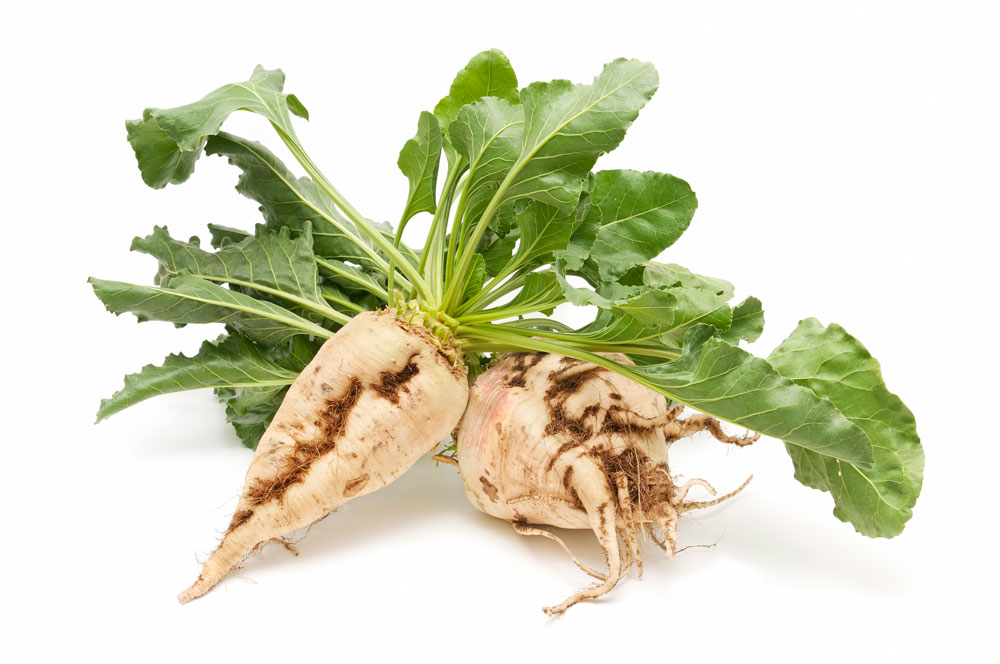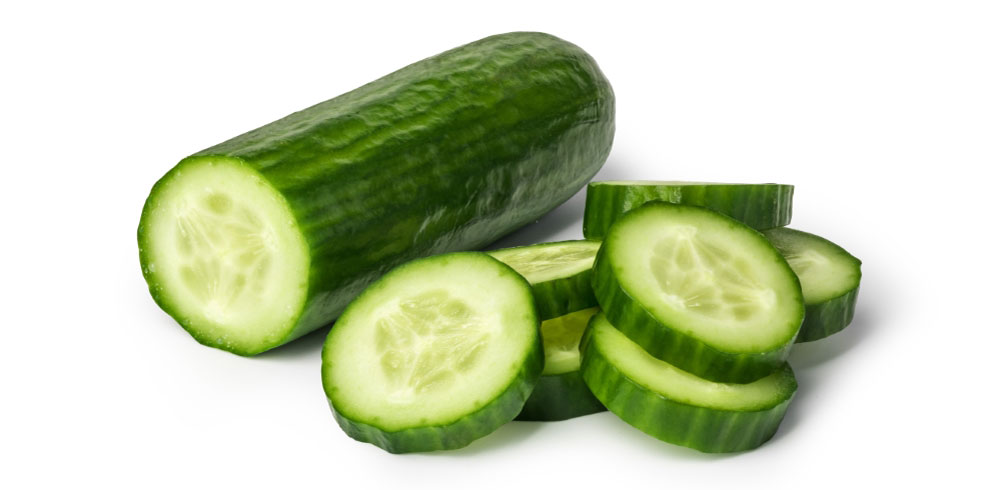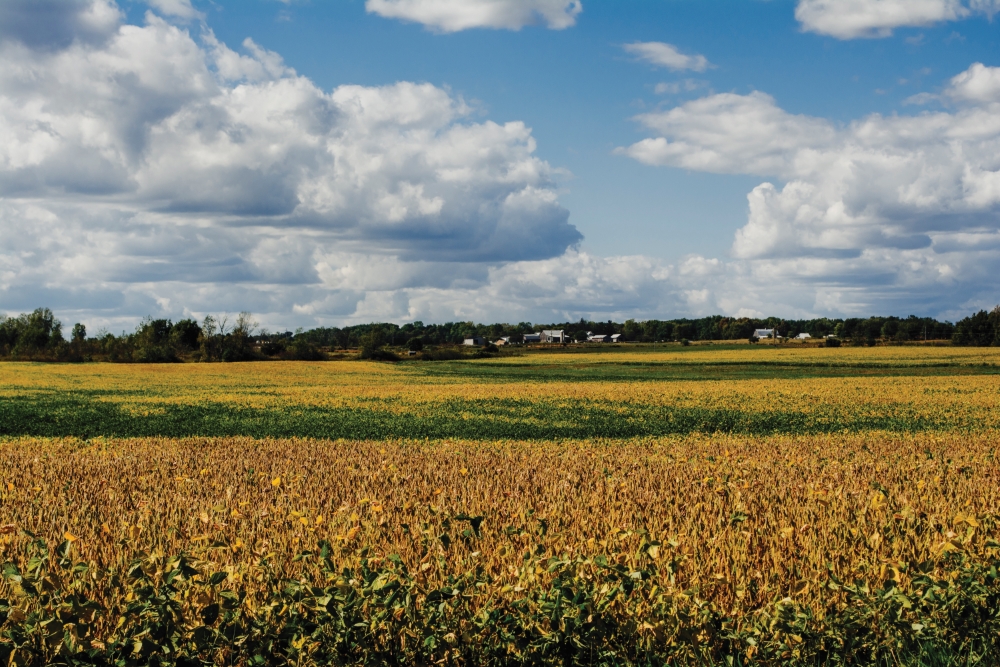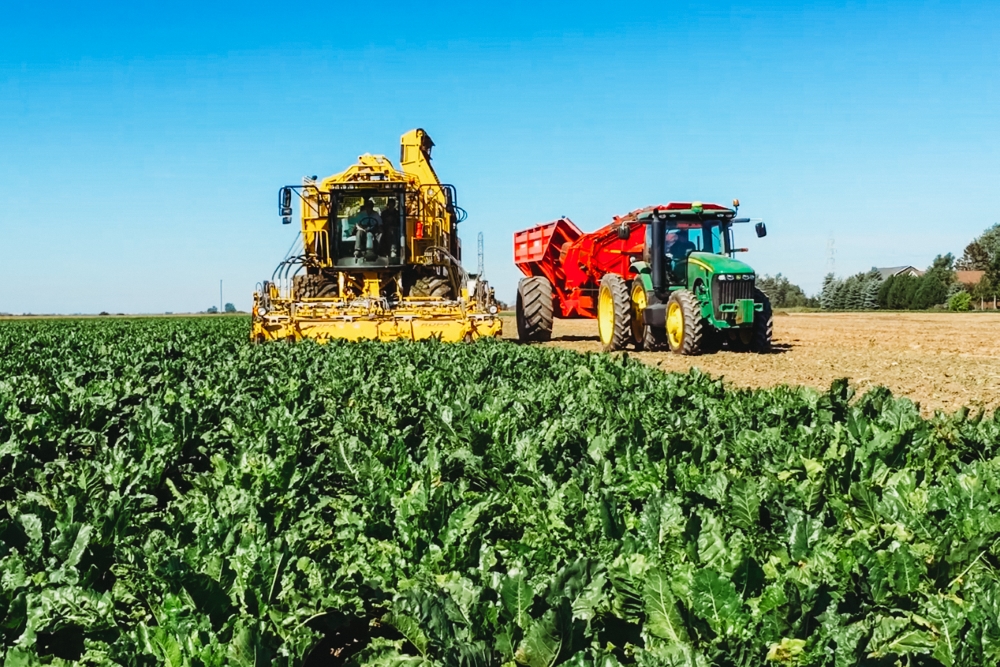As the second-most agriculturally diverse state in the nation, it’s no surprise that some of your favorite crops are grown in Michigan.
The state set a new record for its agricultural-related exports in 2024, with a $282 million increase from the previous year, totaling $2.9 billion. Michigan’s products are increasingly moving out on a global scale, with top export markets including Canada, Mexico, South Korea, Japan, and China, which delivered a $2.18 billion economic impact in 2024.
Data released by the Michigan Department of Agriculture and Rural Development (MDARD) shows that top exports were led by processed food products ($636 million); sugar beet, soybean, soybean residue, brewing waste, and animal feed ($393 million); dairy products ($303 million); pasta, bread, and other starches ($285 million); and wood ($252 million).
“This record-breaking success for our agriculture, food, and forestry companies demonstrates that Michigan agriculture consistently delivers high-quality products in high demand both domestically and internationally,” says Tim Boring, MDARD director. “With so much uncertainty caused by new tariffs, these record numbers serve as a testament to the economic prosperity we can foster with the right support and a level playing field. We’re proud to support Michigan farmers and producers as they expand their markets.”
Through a larger scope, Michigan produces over 300 commodities, leading the U.S. in crops such as apples, dry edible beans, cucumbers, tart cherries, blueberries, asparagus, and more. These crops show favor to the state’s topography, which supports diverse climates and nutrient-rich soil, unlike any other state in the Midwest. Access to a cool environment supported by the Great Lakes has positioned the state as a top 10 grape producer, which has translated into a thriving wine industry with over 175 commercial wineries producing about 4 million gallons of wine annually.
Michigan’s true liquid gold lies in its dairy products and milk, as cash receipts show the state’s 438,000 dairy cows produced more than 12 billion pounds of milk in 2023, resulting in a $2.4 billion impact. In addition to dairy cows, Michigan farms house over 1.09 million cattle and calves, which account for more than 101,000 beef cattle. They are the second highest livestock product in terms of cash receipts, pulling in $832.5 million, followed by chicken eggs at $707.3 million. With more than 16.6 million laying hens, the state is capable of producing billions of eggs annually.
Agriculture has cemented its position as a leading industry in the state, directly supporting 805,000 jobs and generating an annual $104.7 billion in total economic impact in Michigan.
Primed for Production
Approximately 45,581 farms cover over 9.5 million acres of land in Michigan. These operations showcase the deep-rooted experience and expertise harnessed by the state’s industry, as 95% of Michigan farms are individually or family owned.
To ensure seamless connectivity between farmers and food businesses within processing, aggregation, and distribution, MDARD and the U.S. Department of Agriculture entered an agreement under the Resilient Food Systems Infrastructure (RSFI) program to invest $8 million in grant funding for supply chain projects. The agreement was first announced in 2024, offering technical assistance and supply chain coordination with a goal of expanding production capacity, modernizing traditional manufacturing processes, creating better markets for producers, and promoting new or underserved farmers.
In 2025, MDARD announced Michigan’s first grant program specifically designed for middle-of-the-supply-chain agri-food systems. The Food Hubs and Farm Stops grant program takes a unique approach to delivering fresh, locally grown food to residents. This program creates a new economic opportunity for farmers in the state, while providing funding toward innovative distribution solutions. Grants can reach up to $50,000 toward eligible projects. These can include expanding processing capacity, sourcing, transportation infrastructure, distribution services, and more.
A robust local supply chain has served as a powerful magnet for leading food processors. Industry giants such as Cargill, Coca-Cola, Dow, WK Kellogg Co., PepsiCo, and Tyson Foods are just a taste of Michigan’s extensive base of over 2,100 licensed food processors. This ecosystem is bolstered by assets like the Michigan Food Processors Association, which provides a platform for Michigan-based food processors, companies, and organizations to collaborate on industry challenges, access resources, and enhance the state’s industry. These operations are here to stay, and their presence continues to find new growth.
“For five generations, we have been making top-quality pickles in Michigan, and we plan to remain here for generations to come,” said Craig Gielow, vice president of Gielow Pickles, in 2024.

Michigan’s diverse climate supports over 300 commodities grown across the state
Photo: Getty Images
Michigan is ranked No.1 nationally in the production of cucumbers for pickling, supported by companies like Gielow Pickles. The company specializes in pickles, peppers, sauerkraut, and relish products, fully grown and processed in the state. As the manufacturer aims to increase market growth, expansion was a crucial step forward. A $10 million investment supports the construction of an additional facility at the site in Lexington, creating 100 new jobs.

The state is home to over 45,500 farms whose operations cover more than 9.5 million acres
Photos: Getty Images

The project is supported by a $1 million performance-based grant from the Michigan Economic Development Corporation’s Michigan Business Development Program (MBDP).
“This expansion will enable us to create more jobs and increase agricultural production of additional tonnage for crops such as cucumbers, banana peppers, jalapeno peppers, bell peppers, cherry peppers, cabbage, carrots, and cauliflower right here in Michigan,” said Gielow in 2024. He added that, along with growth driven by the expansion, partnerships with other Michigan-based companies — such as Michigan Sugar, Cargill’s Michigan salt division, and Mizkan’s Michigan vinegar — will further boost local job creation and strengthen the agricultural industry.
Tapped In
The fruition of the Southeast Regional Force Main project was no simple feat and required all hands on deck.
Muskegon County partnered with the state as well as local municipalities and industries to deliver infrastructure improvements and extend wastewater service to the county’s southeastern region, in addition to the City of Coopersville. This project was identified as a key way to boost West Michigan’s food and agricultural industry. It will extend the Southeast Regional Force Main, a 30-inch force main wastewater line, by an additional 20 miles.
The infrastructure expansion project officially commenced in 2023, supported by $60 million from the Michigan Strategic Fund (MSF). For regional dairy producers Applegate Dairy, Continental Dairy, and Fairlife, along with Swanson Pickle Company and DeVries Meats, who will soon connect to the extended line, the increased wastewater capacity solves a long-standing challenge.
“Fairlife has been a proud part of the West Michigan community for more than a decade, and the teamwork and commitment to bettering the community demonstrated in this project is a testament to the continued opportunity here for all of us,” said Fairlife CEO Tim Doelman in 2022. “This critical project will help fuel the next decade of growth for our employees who live and work here, our farm partners, and our community as a whole.”
As of 2024, there have been 2,000 ft. of force main installed, 8,400 ft. of pipe fused, and five miles of corridor cleared, resulting in 15% of the total project budget completed. In total, the initiative is expected to result in an estimated $187 million in private investment and will create 145 jobs upon completion.
After a year of monumental growth, Michigan’s agriculture and food processing industries are poised to dive further into innovations across technology, sustainable practices, and workforce development while continuing efforts to strengthen the supply chain. In the meantime, state leadership is committed to allocating the necessary funding and resources to implement transformative strategies, positioning Michigan’s agribusiness industry for success in the future.

